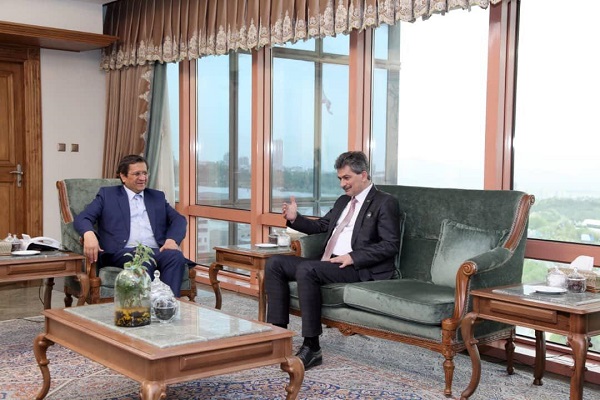Iranian Foreign Minister Mohammad Javad Zarif says that his country has discussed with Turkey the launch of a financial mechanism similar to the European vehicle INSTEX, Tasnim news agency reports.
In January, the EU announced the establishment of a payment channel called Instrument in Support of Trade Exchanges (INSTEX) to secure trade with Iran and skirt US anti-Iran sanctions after Washington pulled out of the 2015 landmark Iranian nuclear deal in May 2018.
The Iranian foreign minister said last week that Turkey has always opposed the US sanctions on Iran and is looking for methods to maintain cooperation with the country despite the sanctions.
Zarif made the remarks in Turkey's capital Ankara before returning to Tehran from his two-day tour to Syria and Turkey last week.
The two countries have agreed to pursue closer trade ties, cooperate in the energy industry and banking sector, use local currencies for businesses, plan for preferential tariff in trade, and establish a mechanism similar to INSTEX, Zarif said.
Turkish Foreign Minister Mevlut Cavusoglu has pledged to pursue the plans urgently, he added.
Zarif described his visit to Syria and Turkey as a "successful regional trip," saying the Islamic republic attaches importance to enhanced relations with neighboring countries.
The move is designed to let Ankara pay for the continued import of Iranian oil after the US announced it wouldn’t renew sanctions waivers to the eight countries that purchased crude from Iran.
The mechanism is also meant to keep the flow of trade between the two neighbouring countries that have set eyes on increasing their annual bilateral trade volume to $30bn in the next two years.
The two countries are bustling to put in place such a channel. At the same time Zarif was in Turkey to receive assurances that Ankara stands by Tehran in the upcoming hard times, Turkish Ambassador to Iran Derya Örs held talks with Central Bank of Iran (CBI) Governor Abdolnaser Hemmati in Tehran about mutual banking cooperation.

Central Bank of Iran (CBI) Governor Abdolnaser Hemmati, left, holds talks with Turkish Ambassador to Iran Derya Örs at CBI HQ in Tehran on 18 April. CENTRAL BANK OF IRAN
Joint exchange shop
Earlier, the Turkish envoy along with Van Chamber of Commerce President Necdet Takva, attended a meeting with members of the Urmia Chamber of Commerce, Industries, Mines and Agriculture (UCCIMA) in the provincial capital of Iran’s West Azarbaijan Province.
Qasem Karimi, a member of the Urmia local chamber, stressed the need for faster clearance of banking transactions between Iran and Turkey, proposing that both countries set up a joint exchange shop to help the Iranian and Turkish businessmen.